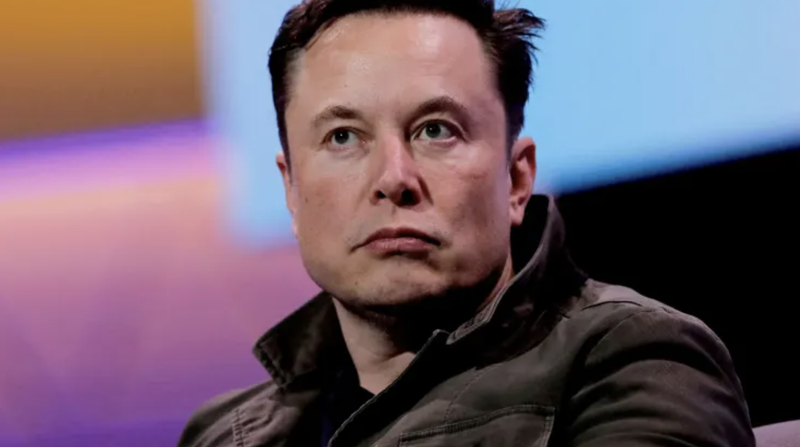Everyone talks about his genius. Few talk about the cost.
Elon Musk is, without a doubt, one of the most iconic figures of the 21st century. The man who built rockets for fun, revolutionized the auto industry, bought Twitter on a whim, and aims to colonize Mars. To many, he’s a visionary. A modern-day Edison. A boundary-pusher. A tech messiah.
But behind the curated tweets, product launches, and viral moments lies a question rarely asked: Is Elon Musk really okay?

A Life Under Pressure
From a young age, Elon Musk was different. Brilliant, introverted, and deeply curious. He read encyclopedias for fun and coded his first game at age 12. But childhood was not kind. Musk has spoken about being bullied relentlessly in South Africa and growing up in a home filled with emotional strain.
As the world applauded his adult successes, few noticed the personal toll it took. Building SpaceX nearly broke him financially and emotionally. Tesla’s early days were a rollercoaster of failed prototypes, near-bankruptcies, and public ridicule. He worked 100-hour weeks, slept on factory floors, and often sacrificed personal relationships for professional milestones.
Musk has admitted to experiencing “excruciating stress” during pivotal periods. He once said, “This is not a situation I’d recommend to anyone… it’s not fun.” And yet, the world cheered louder with each crisis he survived.

The Persona vs. the Person
Elon Musk has mastered the art of myth-making. He tweets memes, jokes about dogecoin, and engages directly with fans and critics alike. But this digital persona — sharp, snarky, often controversial — masks a deeper vulnerability.
Over the years, Musk has made headlines for erratic behavior. Crying during interviews. Posting cryptic or alarming tweets. Smoking marijuana on live podcasts. Getting into online spats with journalists, politicians, and even his own investors. Critics often dismiss these moments as “eccentric genius” antics. But mental health experts see warning signs.
In 2017, Musk confessed that he felt “terrible most of the time,” and in 2022, he hinted at being on the autism spectrum, referring to himself as having Asperger’s. The admission was met with a mix of praise and skepticism — another layer in the puzzle of Elon’s public image.
Isolation at the Top
Fame, paradoxically, can be isolating. Musk is surrounded by millions of followers but reportedly has few close confidants. Multiple relationships — including high-profile ones with Talulah Riley, Amber Heard, and Grimes — have ended, often under intense public scrutiny.
Being the richest man on Earth, at times, didn’t bring happiness. It brought lawsuits, expectations, constant criticism, and pressure to perform at godlike levels. Every failure, every delay, every controversial move — amplified under a global microscope.
And when he falters, the support system seems oddly absent. Where is the compassion for the man behind the myth?
The Cost of Genius
Innovation demands sacrifice. Musk has arguably sacrificed more than most. Time, health, family, reputation. He’s known to ignore sleep, work through holidays, and obsess over micro-details while juggling multiple companies.
But at what cost?
One former Tesla executive once revealed:
“You never felt like he was just a boss. He was a man haunted by the fear of not doing enough — of letting humanity down.”
That kind of pressure is unsustainable. Even superheroes have limits. And while Musk plays the role of the indestructible entrepreneur, he is still, ultimately, human.
Public Scrutiny and the Mental Health Taboo
In 2022, following his chaotic takeover of Twitter, Musk faced widespread backlash. Mass layoffs, platform instability, and questionable policy shifts painted a picture of instability. His tweets became more erratic, more combative.
Journalists and critics piled on. Memes mocked his decline. Former allies distanced themselves.
Yet few paused to ask: Is this a man under immense mental strain? Is this burnout? Is it a cry for help?
Mental health remains a taboo topic — especially for powerful men. Vulnerability is often mistaken for weakness. And in Musk’s case, the myth of genius leaves no room for breakdown.

What Happens When He Breaks?
The world has grown used to Elon Musk defying odds. He lands rockets. He shakes markets with a single tweet. He turns science fiction into reality. But what happens if the pressure finally breaks him?
Will the same people who cheered him on be there to help him heal? Or will he be discarded, mocked, and forgotten the moment he shows weakness?
We live in an age that worships innovation but often neglects the innovators. We idolize success but ignore suffering. And in the rush to crown Musk the man who will save the future, we’ve failed to protect the man in the present.
A Call for Compassion
Elon Musk is not above critique. He’s made mistakes, stirred controversy, and invited public backlash. But he is also a human being — one whose struggles are becoming harder to ignore.
Perhaps it’s time we stop viewing him as a machine, a meme, or a myth. Perhaps it’s time to ask not just what Elon Musk can build, but who will be there when he breaks down.
Because behind every empire, there’s a human. And even the strongest minds can crack under pressure.